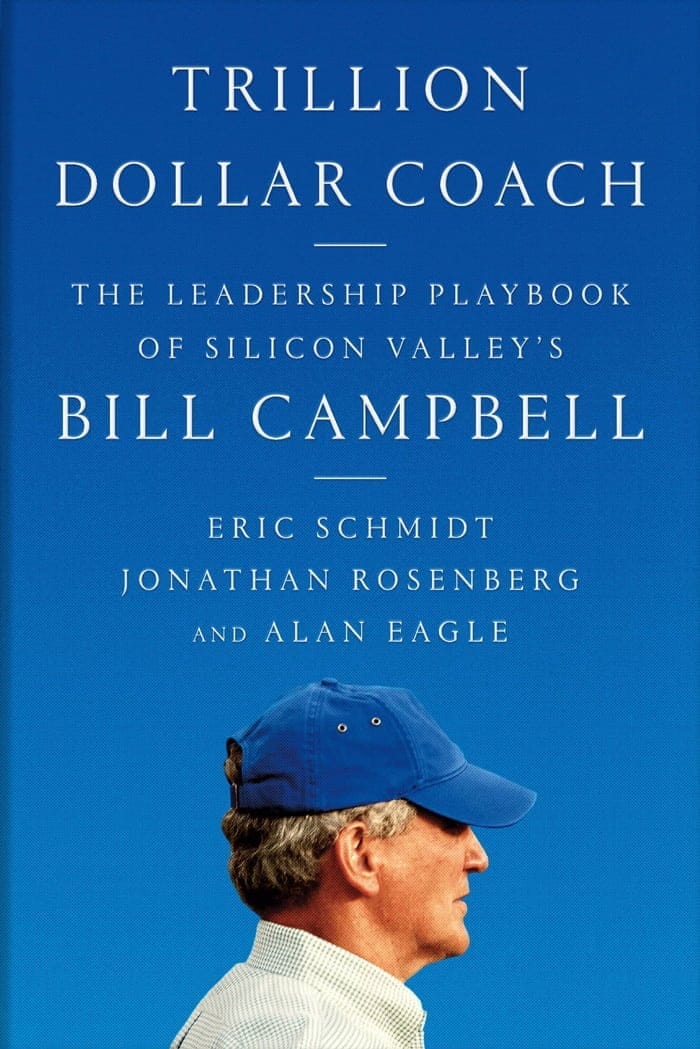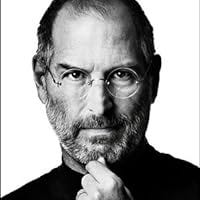"Cookie," It's 1:15, Not 15:1
Critical Lesson Learned from Trillion Dollar Coach, Bill Campbell. Here's to the Quiet Ones...
“Hey Cookie, it’s 1:15. It’s not 15:1.”
Almost 30 years ago, Bill’s gravelly voice cackled on a typical Old Pro Saturday game day. He repeated: “It’s 1:15, not 15:1.” Bill had a nickname for many of his younger “players” he mentored. Mine was obvious.
Bill, for those who don’t know him, in this story is Bill Campbell and arguably one of the most famous coaches ever in Silicon Valley. They even wrote a book about him called the Trillion Dollar Coach. “They” being Larry Page, Sergey Brin, Eric Schmidt, Ben Horowitz and so many others who were lucky enough to work with and/or be coached by Bill.
“Hey, ‘Feathers.’ What do you think? Is it 1:15? or 15:1?” Bill continued his coaching method in his famous gravelly voice.
Feathers, a.k.a Len Bruskiewitz, was a peer, friend, and another future leader who Coach Campbell also took under his wings. Speaking of wings, ”Feathers,” Len, was literally the Boston College mascot. The same mascot seen today any time BC is on TV. One of Bill’s many superpowers was nicknames and while “Cookie” was obvious, “Feathers” is still my all-time favorite. They called Bill “Coach” because he was literally a former football player and head football coach of another East Coast university before he headed west to become a Silicon Valley CEO.
“Cookie, what do you think?” This was the power of Bill’s leadership. He lived his operating values and one of his core values was “Best Ideas Win.” Bill particularly hated it when in a decision room of say 15 of us, everyone was agreeing on the decision without much debate.
On this day, Bill instinctively thought the Intuit leadership team was missing some critical information and without a healthy, challenging debate, he was reluctant to make his final decision as CEO.
“No, I don’t think we should lower our retail price of Quicken from $29.99 to $19.99 just because Microsoft and Computer Associates decided to each give away 1 million copies of their competing product for free. We know we have the best product. Let’s not compete in an unwinnable price war.”
Both huge software companies were attempting a classic market share grab just a few months after Intuit went public. In 1992, Intuit had just sold 1 million copies of Quicken and now both MSFT and CA were trying to flood the market with 2 million free copies.
I was the Director of FP&A at Intuit. I was heavily involved in Intuit’s March, 1993 IPO along with the October, 1993 Chipsoft merger a mere 6 months later. My analysis showed very little evidence of price sensitivity in the personal finance software market.
My view was this would cost Intuit a minimum of $20M (we were a $100M annual revenue company in 1993) which might be better spent on increased marketing or even testing a $10 mail in rebate coupon or a % discount on the first order of check and envelope supplies (there was no such thing as electronic banking or even the Internet in those days).
Len “Feathers” Bruskiewitz and I have remained fast friends and colleagues from the Intuit/Chipsoft “merger of equals” days. We were both about 28 years old and Coach Campbell was twice our age. It’s surreal to think both Len and I are now Bill’s age. But it’s no surprise that Len and I are both paying forward our own lessons learned in Silicon Valley and are both involved now in Executive Coaching of the next generation(s) of leaders.
In 1994, shortly after the Intuit/Chipsoft merger, Bill had been named Intuit’s first external CEO by 10 year founder and CEO, Scott Cook. Scott was making the difficult decision to put the company he founded and took public in the hands of somebody else.
Bill was busy rebuilding his leadership team after the Chipsoft merger that doubled Intuit’s headcount from 400 to 800 employees. “Feathers and Cookie,” though both relatively junior, were included by “Coach” in many of the critical corporate decisions both “on and off the field.” The Old Pro was Bill’s hang out on college football game day Saturdays with a few dozen of his other friends and colleagues. Looking back, Bill always seemed to be coaching. He was a natural at it.
He was also an amazing “3rd level listener.” He had a remarkable instinctive ability to “read the room” and to listen for what wasn’t being said. In those times, Bill would seek out the quiet ones, the less confident ones, and more often the deep thinking business strategists and analysts like Len and I.
Coach Campbell always made it a point to ensure everyone in the decision room had a voice, a point of view, and was heard. When the one person out of 15 provided a different perspective, Bill would lean in hard.
On that particular game day, Saturday at the Old Pro, we all departed to get back to our families and right before we left, Bill couldn’t resist one last coaching moment…
“Hey Cookie! Hey Feathers! Don’t ever forget - it’s 1 out of 15. It’s not 15 to 1.”
This lesson went straight to my core and I’ve paid it forward ever since. As I pass on Coach Campbell’s lesson to all of you, please make a point to ensure you hear from everyone in your next leadership meeting. Ask for their clear point of view and make sure the rest of the room listens.
Coach Campbell’s PlayBook
Go around the room.
Hear from everyone, especially the quiet ones.
Make sure the room listens and considers everyone’s point of view.
“Best Ideas Win” in critical decisions and the only way to get “Best Ideas” on the table is to have a diverse set of ideas!
IMPORTANT:
If you are one of the quiet ones in the room, and your leadership team doesn’t use this playbook, try to find the courage to speak up. I know many of you recognize this feeling very well just as I felt it over my early leadership years.
As I re-tell the above story, one of my favorite quotes and ad campaigns has just popped into my head:
“Here's to the crazy ones. The misfits. The rebels. The troublemakers. The round pegs in the square holes. The ones who see things differently. They're not fond of rules. And they have no respect for the status quo. You can quote them, disagree with them, glorify or vilify them. About the only thing you can't do is ignore them. Because they change things. They push the human race forward. And while some may see them as the crazy ones, we see genius. Because the people who are crazy enough to think they can change the world, are the ones who do.”
Steve Jobs
As I write this newsletter, my immediate next thought is somebody should rewrite this for the introverts, the quiet ones. So here goes. Here’s my personal “best shot” re-mix / mashup of Bill’s 1:15 mantra + Steve’s famous ad campaign:
Here’s To The Quiet One’s:
“Here's to the quiet ones. The deep thinkers. The shy souls. The tetris and gaming geniuses. The ones who observe in silence. They are not the loudest in the room. And they don’t crave the spotlight. You can overlook them, underestimate them, dismiss them or admire them. About the only thing you can't do is disregard them. Because they see things others miss. They unravel complexities and find clarity in chaos. They look around corners and are always three moves ahead in the chess game of life. And while some may see them as introverted and quiet, we see imaginative brilliance and valuable insights others have missed. Because the people who dare to think deeply and differently are the ones who can illuminate the path forward. You just need to ask them.”
Jim Cook - Cook’s PlayBooks
How many times have you been in a team or leadership group decision making meeting and the roommate in your head is shouting at you to say something that disagrees with the rest of the group?
Yet, you stay silent thinking, “They must know better.”
How many times have you looked back and realized your instincts were right?
I know this feeling. I’m rather certain many of you know this feeling.
“Best Ideas Wins”; “It’s 1:15, Not 15:1.”
As I pay Coach Campbell’s valuable lesson forward, your job is to now actively listen to the quiet ones on your team or in the room and to coach this playbook from your leadership position.
Sincerely,
“Cookie”





